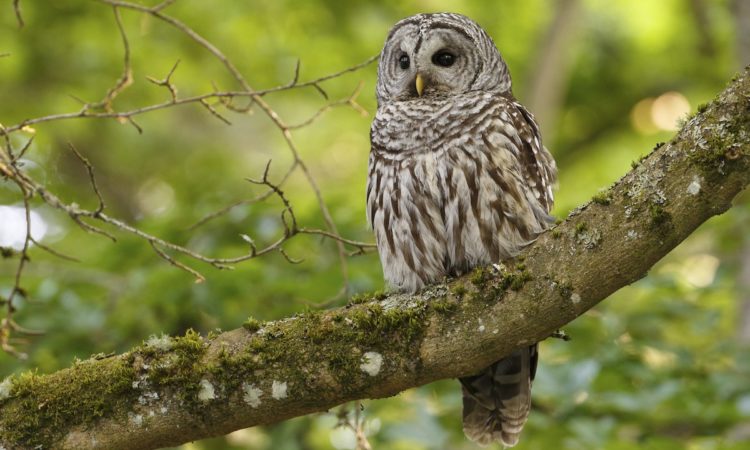During a weekend walk, I passed a neighbor’s yard where a large, old tree had been cut down. In the remains stacked up on the curb, I noticed that the now dead tree had a natural hole in what would have been its upper trunk or at its early crown.
I could not help but sadly think that the hole may have been the perfect size to be home to my neighborhood Barred Owl. That Owl keeps me company during my early morning executive routine – with its signature hoot that sounds like “who cooks for you?”
As I was praying that my Owl’s home is in a different tree, it got me thinking about how quickly we discard the old. I started thinking about how learning tends to be defined as “new information” with less and less value being placed on the art of reflection and learning from the past. That “best practices” are being replaced by, more often than not, only “new practices.”
Wisdom seems to be losing its value. And fast.
It’s not too late.
Before we keep chopping wisdom down, we can learn how to not only sustain it, but how to grow it.
How, you might ask? By turning our attention to the animal that is most often associated with wisdom. Even as far back as in Greek Mythology, an Owl sat on Athena’s, the Goddess of Wisdom and Strategy, blind-side. No doubt its symbol was chosen for a reason.
Here are three skills that the wisdom of an Owl can teach us. Apply them in life and leadership to grow your Wisdom:
- Perspective.
Thanks to its 14 neck vertebrae versus our 7, the Owl has the ability to rotate its head 270-degrees in each direction. The Owl does not just look forward, it takes in the view from what’s behind it as well.
Wisdom is not innate. Wisdom is acquired through experience – experience is what is behind us, from what we have already been through or learned.
Making wise decisions includes factoring in multiple perspectives. Again, not just what is in front of us, but what is also behind us. Perspective gives us a stronger foundation upon which we can build and create more informed decisions.
When choosing your course of action, it is wise to see the full picture. Take a look around you, in all directions.
- Listening Skills.
Picking up a mouse’s “squeak” from half a mile away shows pretty good listening skills in my book.
Wisdom comes from a collecting a body of knowledge and principles over a time period.
How do we collect that body of knowledge? We listen – both literally and figuratively. We listen to our environment. We listen to others. We listen, intently, to what is really going on in and about our surroundings.
We listen, without judgment, to learn and to add information to our mental database. This “body of knowledge” grows over time and gives us a source from which to draw upon in times of need.
Instead of being so quick to share your perspective, it is wise to first listen and listen to truly hear and gain understanding.
- Discernment
Due to their immobile, tube-shaped, big eyes, Owls have binocular vision which creates advanced depth perception. This depth perception enables Owls to discern what to focus on – what is important – such as their prey.
In human terms, this discernment is the ability to sort the “wheat from the chaff” so-to-speak. What is just noise and what deserves our attention? What is the right things to focus on?
Wisdom is the soundness of action or decision based on good judgement. Being able to discern what makes an action or a decision a good one or a bad one – and choosing the “sounder” option time and time again.
Discernment is a skill that keeps us focused whatever it is we want to be achieving. The vision, goal, desired outcome, or prey – so to speak, upon which we have in our sights. Each decision we make either keeps us on the right path or puts us off of it.
When coming to a fork in the road or when a distraction comes your way, it is wise to pause and re-focus on your vision. First discern and then embrace the choice that gets you one step closer to your desired outcome.
So, it seems the Wise Old Owl still has a thing (or three) to teach us. Before we are too quick to cut down the old, it is worth first ensuring that we have perspective, have listened to other points of view, and have practiced discernment before blazing new trails ahead.


